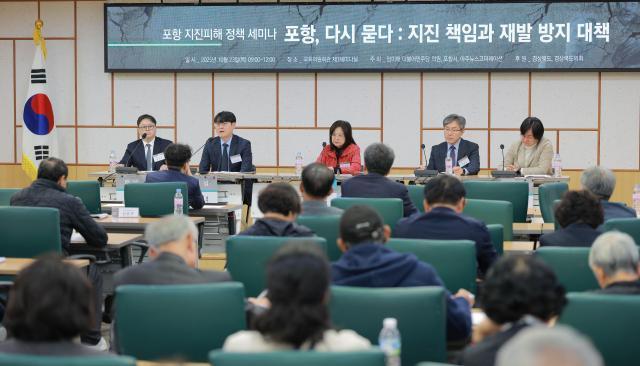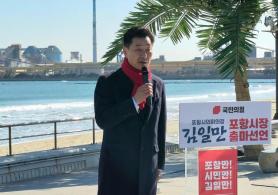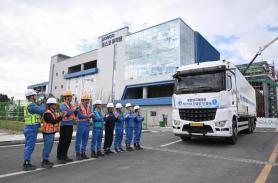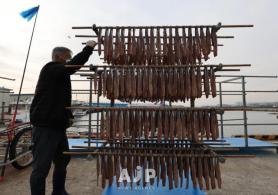
SEOUL, October 24 (AJP) - Legal and academic experts called for fairer compensation standards and stronger accountability in the long-running case over the 2017 Pohang earthquake, saying South Korea must rebuild public trust while preventing similar disasters.
The discussion took place on October 23 at the National Assembly Members’ Office Building in Yeouido, where the "Pohang Earthquake Damage Policy Seminar" gathered lawyers, professors, and local representatives. Panelists included Shin Eun-joo, professor of law at Handong Global University; Kim Eun-joo, Pohang City Council member; attorneys Gong Dae-ho and Kim Bu-jo; and Ha Dong-ho, professor at Konkuk University and president of the Korean Society of Earthquake Engineering.
The 2017 quake, measuring magnitude 5.4, struck the city’s northwestern area, followed by a 4.6 aftershock in early 2018. It left about 2,000 people displaced and caused an estimated 84.57 billion won, or roughly 58.8 million dollars, in property losses. In 2018, residents filed a damages suit against the government, claiming the quake had been induced by geothermal energy testing. The first trial partly acknowledged the state’s responsibility, but the appeals court overturned the decision, citing a lack of scientific proof.
Attorney Gong Dae-ho criticized the strict standard of proof applied to the case. "In environmental or medical lawsuits, courts often ease the burden of proof because causation is difficult to establish," he said. "Even with expert reports and findings from the Board of Audit and Inspection, the court dismissed the state’s responsibility for lack of evidence. When the state leads a project, the standard should be more flexible to reflect the imbalance between the parties."
He warned that the judiciary must avoid treating such cases as technical disputes. "The Supreme Court’s decision will set a precedent for how government responsibility is judged in future disasters," he said. "The court should approach this issue with the public’s perspective in mind."
Attorney Kim Bu-jo said the appellate court narrowly interpreted public officials’ duty of care, allowing the state to evade accountability. "The ruling said there was no clear violation of duty, even though proper oversight could have prevented the damage," he said. "Applying such rigid proof standards in cases between citizens and the government goes against the spirit of justice and erodes public confidence."
Professor Shin Eun-joo said the court applied criminal-level standards to a civil case. "Civil cases require a lower threshold of proof," she said. "Judges should not mechanically apply the law but assess whether it makes sense in context. Sometimes, fairness requires easing the evidentiary burden."
Beyond the courtroom, experts also raised concerns over South Korea’s limited technical capacity for disaster prevention. Professor Ha Dong-ho noted that the country still lacks enough field engineers specializing in seismic design. "There’s a serious shortage of engineers with practical experience in earthquake-resistant technology," he said. "Most of the training is available only at the graduate level. The government and private sector need to support these professionals rather than relying on them without fair compensation."
The discussion also turned to how the city might transform its painful experience into a learning and tourism resource. Council member Kim Eun-joo said countries such as New Zealand, Japan, and Taiwan have turned post-quake recovery into educational and cultural opportunities. "New Zealand operates earthquake museums and safety experience centers that turn painful memories into assets for the community," she said.
Kim said Pohang is collecting residents’ stories, photos, and records to build a public archive. "The city is making efforts to ensure that the earthquake is remembered and that its lessons continue to shape Pohang’s future," she said.
Copyright ⓒ Aju Press All rights reserved.




